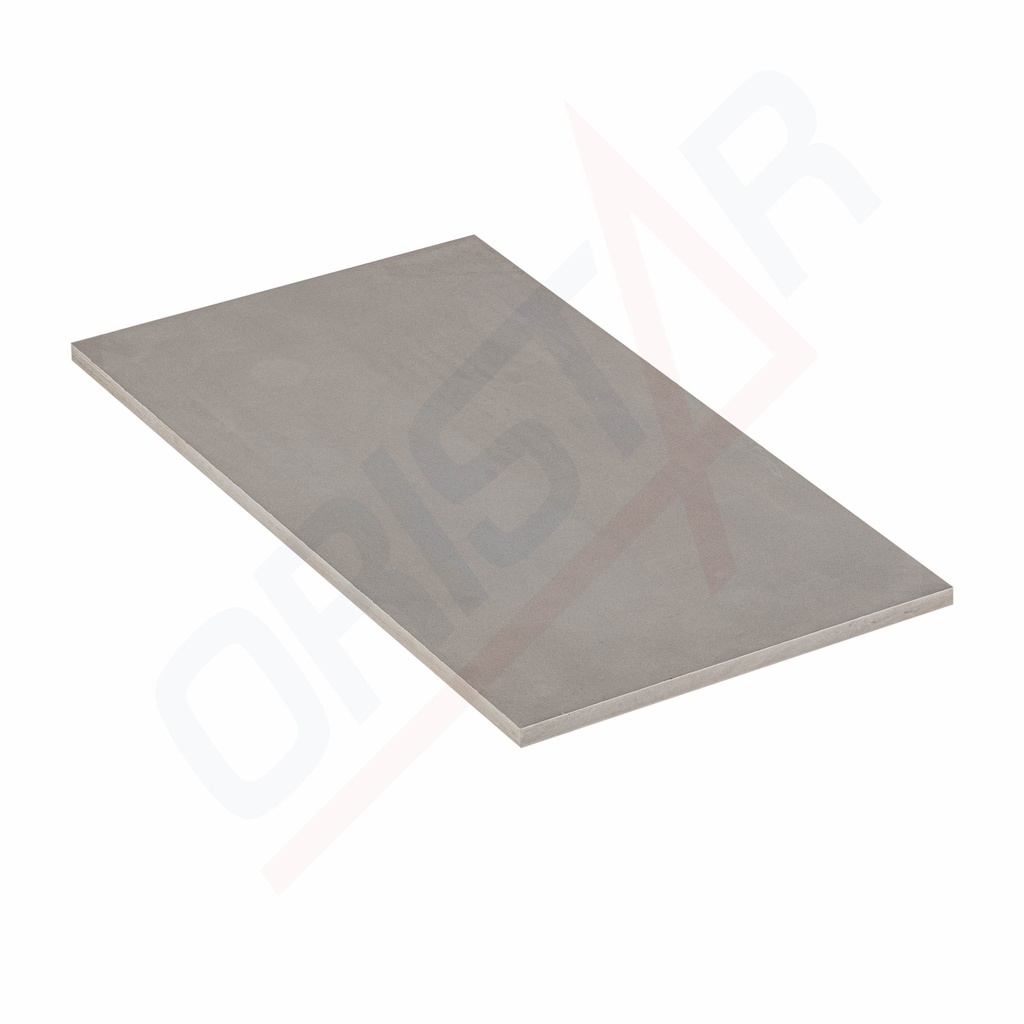THÔNG TIN CƠ BẢN
SKD61 Alloy Steel Plate, also known as H13 in the U.S. standard, is a heat-resistant tool steel widely used in the mold manufacturing and casting industries. SKD61 is an alloy steel with excellent wear and heat resistance, making it particularly suitable for applications in high-temperature conditions.
1. Chemical Composition
Carbon (C): Around 0.32-0.42%, which increases hardness and strength.
Chromium (Cr): Approximately 4.50-5.50%, providing wear and oxidation resistance.
Molybdenum (Mo): Around 1.00-1.50%, enhancing heat resistance and dimensional stability.
Vanadium (V): Around 0.80-1.20%, improving strength, toughness, and wear resistance.
2. Mechanical Properties
Hardness: After heat treatment, SKD61 can reach a hardness of 48-52 HRC.
Heat Resistance: SKD61 maintains its hardness and wear resistance at high temperatures, making it ideal for applications working up to 600°C.
Toughness: Excellent resistance to cracking and good load-bearing capacity even at high temperatures.
3. Applications
Plastic Injection Molds: Widely used in the manufacture of plastic injection molds and metal casting molds.
Die Casting Molds: SKD61 is employed in die-casting molds for materials such as aluminum, zinc, and magnesium.
Cutting Tools: Used in producing cutting tools and machine parts subjected to high loads.
Hot Forging Dies: Due to its excellent heat resistance, SKD61 is commonly used in the manufacture of dies in the hot forging industry.
4. Heat Treatment
Quenching: The quenching process for SKD61 is usually performed at temperatures around 1020-1050°C, followed by cooling in oil or air.
Tempering: After quenching, SKD61 is tempered at temperatures between 500-600°C to reduce brittleness and ensure dimensional stability.
5. Key Advantages
Good wear resistance: Especially in high-temperature environments.
Toughness: Stable mechanical properties at high temperatures, with excellent resistance to cracking and deformation.
Machinability: SKD61 is easy to machine before heat treatment, reducing production costs.
Thermal shock resistance: SKD61 withstands sudden temperature changes without cracking.
6. Surface Treatment Capabilities
SKD61 can be coated or plated to enhance surface protection, improving wear resistance and extending mold life.
With its superior mechanical properties and heat resistance, SKD61 is an ideal choice for applications in the mold-making and machine manufacturing industries, where high stability and durability are required under harsh working conditions.
(Source: Internet)
1. Chemical Composition
Carbon (C): Around 0.32-0.42%, which increases hardness and strength.
Chromium (Cr): Approximately 4.50-5.50%, providing wear and oxidation resistance.
Molybdenum (Mo): Around 1.00-1.50%, enhancing heat resistance and dimensional stability.
Vanadium (V): Around 0.80-1.20%, improving strength, toughness, and wear resistance.
2. Mechanical Properties
Hardness: After heat treatment, SKD61 can reach a hardness of 48-52 HRC.
Heat Resistance: SKD61 maintains its hardness and wear resistance at high temperatures, making it ideal for applications working up to 600°C.
Toughness: Excellent resistance to cracking and good load-bearing capacity even at high temperatures.
3. Applications
Plastic Injection Molds: Widely used in the manufacture of plastic injection molds and metal casting molds.
Die Casting Molds: SKD61 is employed in die-casting molds for materials such as aluminum, zinc, and magnesium.
Cutting Tools: Used in producing cutting tools and machine parts subjected to high loads.
Hot Forging Dies: Due to its excellent heat resistance, SKD61 is commonly used in the manufacture of dies in the hot forging industry.
4. Heat Treatment
Quenching: The quenching process for SKD61 is usually performed at temperatures around 1020-1050°C, followed by cooling in oil or air.
Tempering: After quenching, SKD61 is tempered at temperatures between 500-600°C to reduce brittleness and ensure dimensional stability.
5. Key Advantages
Good wear resistance: Especially in high-temperature environments.
Toughness: Stable mechanical properties at high temperatures, with excellent resistance to cracking and deformation.
Machinability: SKD61 is easy to machine before heat treatment, reducing production costs.
Thermal shock resistance: SKD61 withstands sudden temperature changes without cracking.
6. Surface Treatment Capabilities
SKD61 can be coated or plated to enhance surface protection, improving wear resistance and extending mold life.
With its superior mechanical properties and heat resistance, SKD61 is an ideal choice for applications in the mold-making and machine manufacturing industries, where high stability and durability are required under harsh working conditions.
(Source: Internet)


